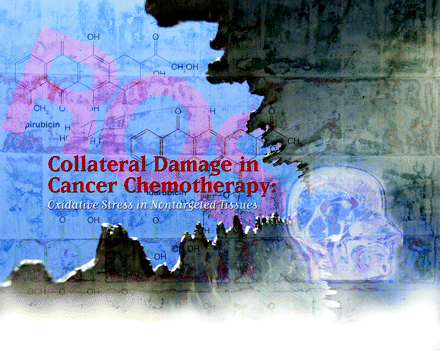Collateral Damage in Cancer Chemotherapy: Oxidative Stress in Nontargeted Tissues
Abstract
Injury to nontargeted tissues in chemotherapy often complicates cancer treatment by limiting therapeutic dosages of anticancer drugs and by impairing the quality of life of patients during and after treatment. Oxidative stress, directly or indirectly caused by chemotherapeutics as exemplified by doxorubicin, is one of the underlying mechanisms of the toxicity of anticancer drugs in noncancerous tissues, including the heart and brain. A comprehensive understanding of the mechanisms of oxidative injury to normal tissue will be essential for the improvement of strategies to prevent or attenuate the toxicity of chemotherapeutic agents without compromising their chemotherapeutic value.

- © American Society for Pharmacology and Experimental Theraputics 2007



